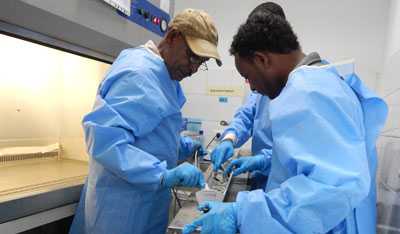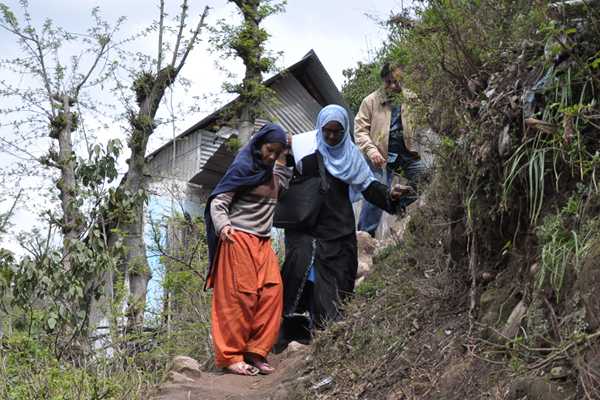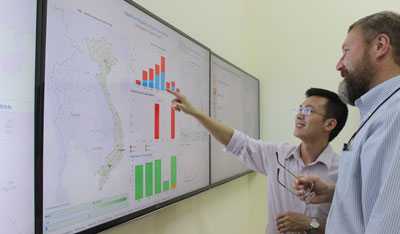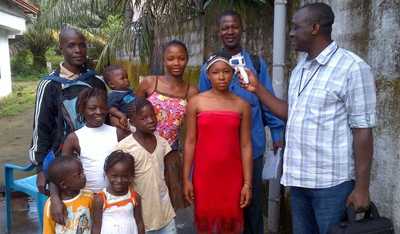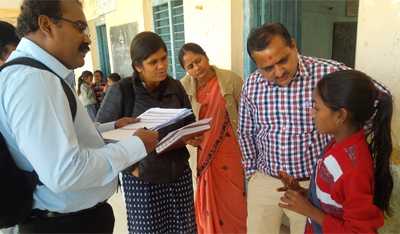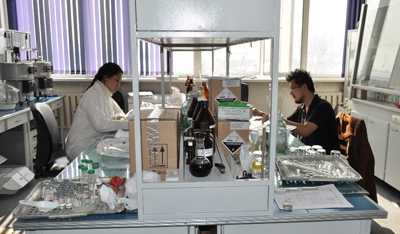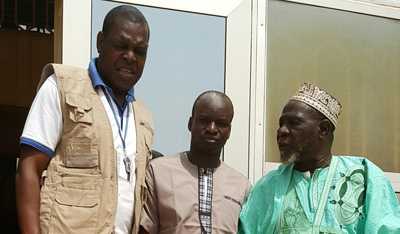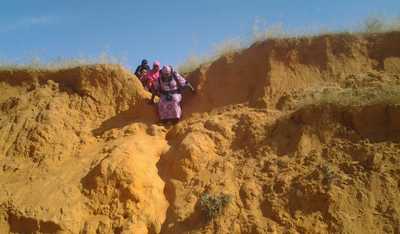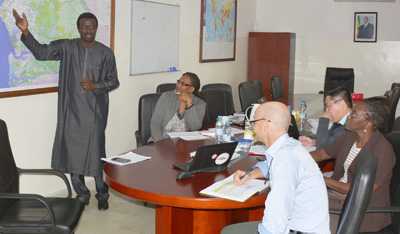GHSA in Action Stories
In the worldwide effort to meet the 11 defined targets of the Global Health Security Agenda (GHSA), CDC brings extensive experience in public health emergency management, disease tracking, surveillance systems, training, infection control, and laboratory systems targeting high-hazard pathogens, including Ebola. CDC is currently working with partner countries to:
- Prevent avoidable catastrophes through targets addressing antibiotic resistance, zoonotic disease, biosafety/biosecurity, and immunization
- Detect threats early through targets for strengthening laboratory and surveillance systems, reporting, and a capable workforce
- Respond rapidly and effectively through targets for building Emergency Operations Centers, linking public health and law enforcement, and improving medical countermeasures and personnel deployment
The stories on this page illustrate the day-to-day work being done by CDC and its country partners to implement the GHSA across the globe.
It Takes a Village: A Community Approach to Stopping Outbreaks in Guinea
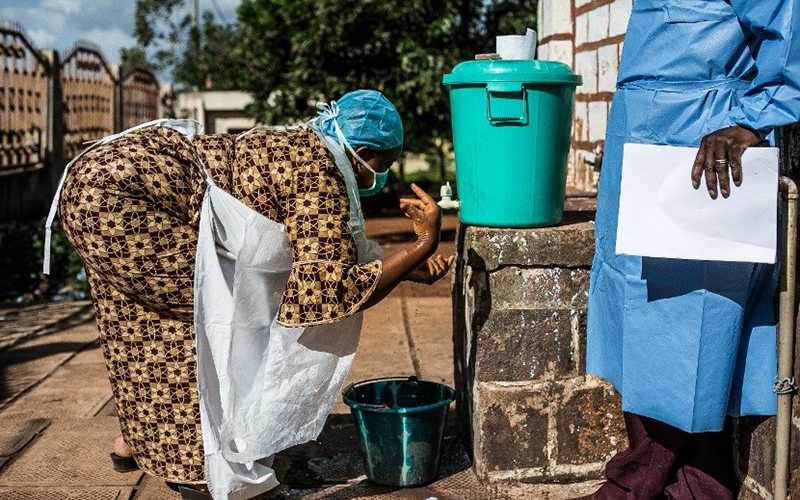
Three years ago, Ebola in a remote area in Guinea spread and grew into the world’s first epidemic of the virus. We quickly saw that the most effective way to stop infectious diseases from spreading was to involve the whole community. Now Guinea is applying lessons from the Ebola response, including engaging in community outreach, building triage centers at…
Posted August 06, 2017
Improving National Surveillance and Response Systems One Country at a Time
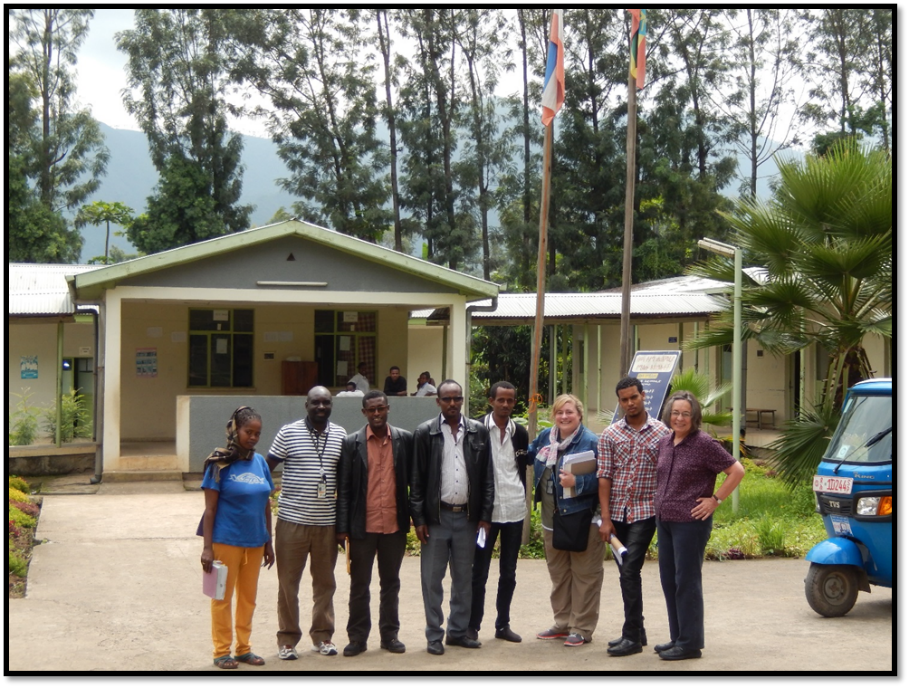
Ebola taught us how easily a deadly disease can spread worldwide if there are no effective surveillance and response systems to detect and control disease outbreaks at the source.
Posted August 06, 2017
Snow in Senegal
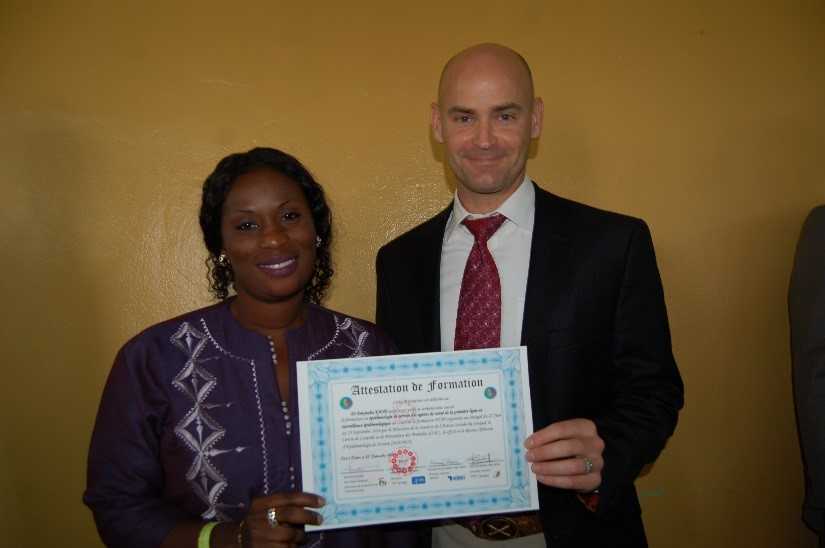
Stopping a contagious illness often requires detective work, like that of the father of modern epidemiology, Dr. John Snow. In 1854 Dr. Snow, applying disease detection techniques, identified a well in the Soho district of London as the source of a cholera outbreak and removed the pump handle on the well to stop the outbreak…
Posted August 06, 2017
India (AFI) Surveillance (GHSA) in Action
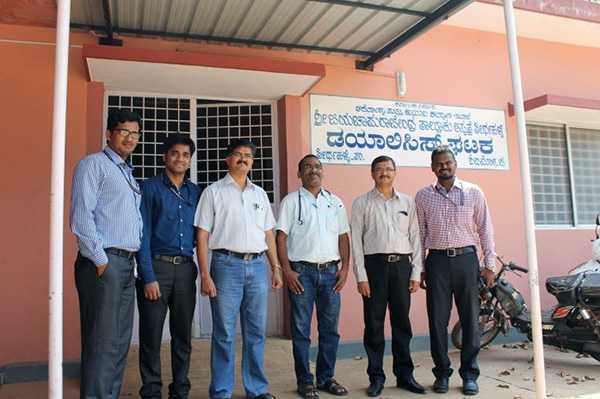
In Western Ghats and other similar regions in India, smaller, remote hospitals often have to either wait weeks for test results from larger district labs or send patients on long, bumpy bus rides to hospitals with more advanced lab capabilities…
Posted December 23, 2016
Sierra Leone (IDSR) (GHSA) in Action
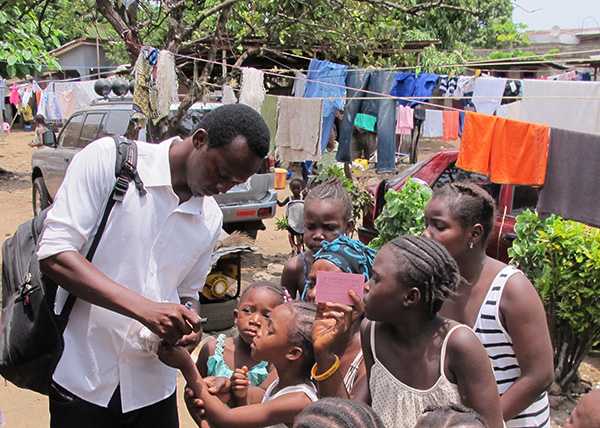
Time is of the essence to prevent clusters of illness from turning into disease outbreaks. Public health workers can take action to prevent the spread of disease, and thereby prevent illnesses and deaths, when authorities are alerted quickly about a disease occurrence. When Ebola struck in 2014, Sierra Leone lacked an effective infectious disease reporting system…
Posted December 23, 2016
Liberia Workforce Development (FETP) in Action
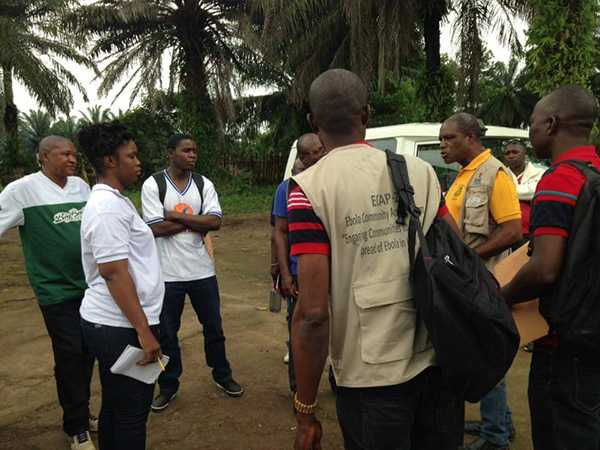
FETP trains field epidemiologists around the world, giving them the skills to collect, analyze, and interpret data to make decisions that can save lives. To keep the world safe from devastating diseases like Ebola, well-trained disease detectives are needed in every country to detect and contain diseases before they spread…
Posted December 23, 2016
Tanzania Surveillance (GHSA) in Action

Tanzania is filling in the gaps of its health facility-based disease surveillance system to rapidly detect outbreaks by leveraging existing local community structures. Recently, the country successfully piloted an initiative to train community health workers (CHWs) and health care workers (HCWs) in community-based disease surveillance (CBDS) so they can help improve disease detection, prevention, and control at the community level…
Posted December 23, 2016
Ethiopia: Bringing Laboratory Safety Home
As we learned from HIV, Ebola, and other scary microbes, testing a patient’s bodily fluids can be dangerous – even deadly. For laboratory workers who handle these fluids every day, the risk is real and immediate…
Posted June 27, 2016
India: Staying Healthy at “The Biggest Gathering on Earth”
Imagine a gathering larger than the upcoming Olympics in Rio. But instead of descending upon a city, millions of religious pilgrims build their own temporary metropolis of tents along the riverside, waiting their turn to take a dip in the holy waters behind the thousands of sadus, or holy men, who lead the procession to the riverbank before sunrise…
Posted June 22, 2016
Disease Detectives Protect Children in Pakistan
When too few people are protected by vaccines, deadly illnesses can erupt and target the most vulnerable – especially children. Outbreaks of childhood diseases like measles, diphtheria, and pertussis are preventable with vaccines, but not everyone has easy access to get them. …
Posted May 24, 2016
Vietnam: Connecting for Stronger Emergency Response
Vietnam is creating a network of EOCs to monitor disease transmission data in real time, bringing outbreak detection and response closer to the source. Each EOC in the network will act as a nerve center for epidemic intelligence, mobilizing responses to public health threats and coordinating with ministries in emergencies. Four interlinked regional EOCs will be able to communicate and share data directly with Vietnam’s national EOC and with international partners…
Posted May 17, 2016
Vietnam: Empowering Communities to Detect Potential Outbreaks Early
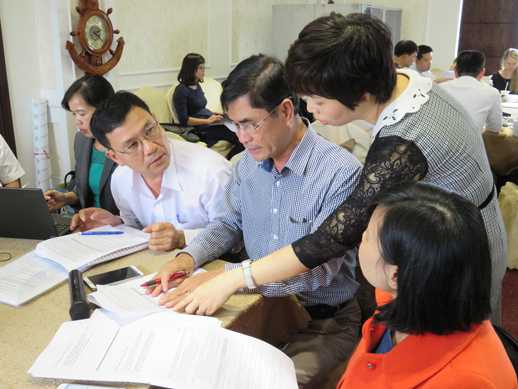
A parent hears rumors from other parents about several children bitten by a rabid dog. A teacher sees an unusually high number of children absent from school and hears that they all have similar symptoms. It could be a coincidence. It could be a local disease outbreak. Or it could be the first signs of an epidemic…
Posted May 3, 2016
Ghana: Quick Laboratory Action Helped Control a Meningitis Outbreak
Assisting with outbreaks usually requires travelling light. But sometimes it requires hauling heavy equipment across the world. When CDC experts were asked by Ghana to assist with a meningitis outbreak, they arrived lugging a PCR machine, an instrument used in a laboratory that can confirm disease diagnoses through molecular detection. The team had carried the machine all the way from their lab in Atlanta…
Posted April 14, 2016
Cameroon: Global Health Security Effort Gives “Muscle Memory” In How to Fight Disease
Cameroon is taking lessons learned from previous outbreaks to shorten response times through their newly developed Emergency Operations Center, which serves as a role model for global health security success. In one year, experts reduced response time to a health emergency from 8 weeks to one week. When Cameroon’s EOC was activated for the first time in response to a cholera outbreak, it took more than eight weeks to get organized and respond. By the time their full resources were brought to bear on the outbreak, it was nearly over. In sharp contrast, when a Lassa fever outbreak occurred just one year later, that same team took only a week to mobilize and take action…
Posted March 9, 2016
Country of Georgia: Putting Data to Work
Georgia is the first country to take on the challenge of completely eliminating Hepatitis C (HCV) and they’re using a team of international disease detectives to find out how it’s spreading. Teams overcame language and navigation challenges, going door-to-door in remote areas to gather information. Survey results are already informing national strategy: Experts assumed that HCV in Georgia could be traced back to intravenous drug use, reusing syringes, or being previously incarcerated, but survey information indicates that transmission could also be associated with lack of infection control surrounding medical and dental procedures, and even tattoo parlors and manicure salons…
Posted February 10, 2016
DRC: Bridging the Gap During the Ebola Epidemic
During the Ebola epidemic, disease detectives from the Democratic Republic of Congo brought contact-tracing expertise to Guinea to help find and stop the disease. The DRC has its own history with Ebola, having faced one short-lived outbreak in 1976 and another in the mid-90s. When Ebola briefly returned again in the summer of 2014, a trained team of field epidemiologists helped swiftly put a stop to the outbreak, limiting it to 66 cases…
Posted February 10, 2016
India: Labs Rise to the Challenge
India is improving its ability to detect one of its most common killers: acute diarrheal disease. Epidemiologists, microbiologists, lab technicians, and healthcare staff have been trained and mentored on procedures for stool specimen collection, transport, laboratory testing, and reporting. In just two years, more than 30 outbreaks have been detected and reported in four pilot districts across Tamil Nadu and Gujarat; 2000 samples have been properly collected, transported, and tested. Clinical specimens were tested in 75% of those outbreaks, bringing results on par with some of the best standards in the world…
Posted February 9, 2016
Kazakhstan: Improving Laboratories One Step at a Time
As part of a large-scale project to modernize Kazakhstan’s outdated laboratories, the “stepwise” laboratory improvement process is producing immediate and measurable results. Over 15 months of stepwise training, five laboratories were transformed. Each now has a designated quality manager and biosafety officer who teach staff how to meet requirements and do their jobs better. Participating laboratories offer targeted training to other facilities within their region, spreading improvement grassroots-style, one facility at a time…
Posted February 10, 2016
Mali: A Wider Net Catches Polio
A field epidemiology training program called FETP STEP, which was put in place to address the Ebola outbreak, turned out to also be key in thwarting a potentially devastating outbreak of polio. In September 2015, a 19-month-old child from Guinea crossed the border into Mali with a case of vaccine-derived polio. Drawing on his training, an FETP STEP graduate led surveillance and investigation in the affected district. Through contact tracing, he found that seven other children had been in contact with the child and would need close monitoring. CDC-trained personnel also worked with the Ministry of Health to launch an emergency vaccination campaign in Bamako and surrounding areas, and helped increase monitoring at the border…
Posted March 16, 2016
Nigeria: How Being Prepared Avoided a Tragedy
Nigeria’s success in containing the Ebola outbreak to just 19 cases in two cities was due to surveillance and response systems already in place. A strong trained workforce through the Field Epidemiology Program (FETP) helped identify and isolate potential cases of Ebola. CDC responders joined 13 Nigerian FETP trainees and 40 FETP graduates to halt the outbreak within three generations of transmission. In total, the team identified 894 contacts, completed nearly 19,000 contact tracing home visits, and reached 26,000 households through a social mobilization strategy. They also established an Ebola treatment unit and trained Ebola caregivers in just two weeks. Also crucial was the Lagos Emergency Operations Center, which had been set up to address the polio outbreak in the country. The EOC housed experienced polio staff who had extensive experience in Nigeria, knew many of the key Ministry of Health officials, and understood the strengths and weaknesses of the nation’s health system…
Posted February 9, 2016
Senegal: Emergency Operations Center Becomes a Model in West Africa
Senegal’s new Emergency Operations Center (EOC) is starting to be recognized as a model in the region. Dr. Abdoulaye Bousso, the Coordinator of Senegal’s EOC, has been telling colleagues from Ministries of Health across Africa that they need to have an emergency operations center. The World Health Organization has invited Dr. Bousso to Mauritania to help establish an EOC there. Our strategy, says Dr. Bousso, has been “to work and to show them something real with results.” Their results are getting noticed…
Posted March 18, 2016
Thailand: Field Epidemiologists Fight Global Health Threats
FETP first took root outside of North America in Thailand as a partnership with the country’s Ministry of Health. In the last 35 years, Thailand’s FETP has helped tackle some of the most lethal public health threats in the region, including HIV, severe acute respiratory syndrome (SARS), botulism, malaria, and the 2009 influenza pandemic. FETP residents were instrumental in identifying high-risk populations for HIV infection in the early days of the AIDS epidemic in Thailand…
Posted February 10, 2016
Thailand: Stronger Labs Improve Detection
Welcoming people into a country without welcoming the spread of infectious diseases can be tricky. Thailand is watching for outbreaks along its borders, using advanced molecular detection and a network of laboratories to provide fast and accurate results on dengue, Zika, and other infectious diseases. In hospitals and clinics along the Thai border, staff from the Ministry of Health identify patients with fever, collect clinical information, transport and test samples, and provide results back to clinicians…
Posted February 10, 2016
- Page last reviewed: August 6, 2017
- Page last updated: August 6, 2017
- Content source:
Global Health
Notice: Linking to a non-federal site does not constitute an endorsement by HHS, CDC or any of its employees of the sponsors or the information and products presented on the site.


 ShareCompartir
ShareCompartir
